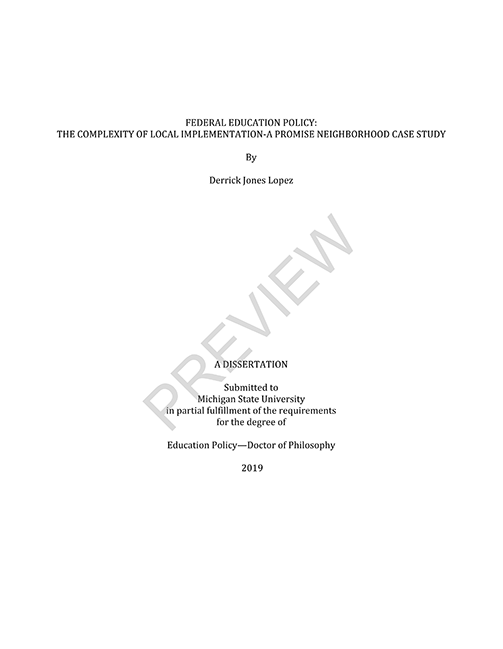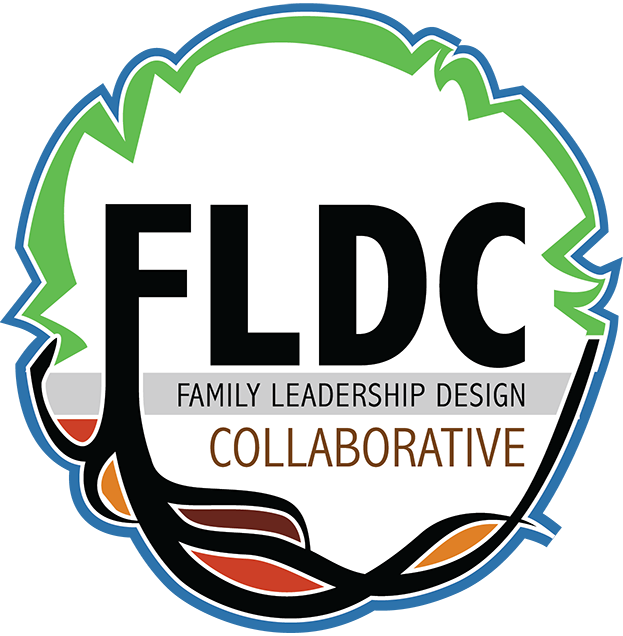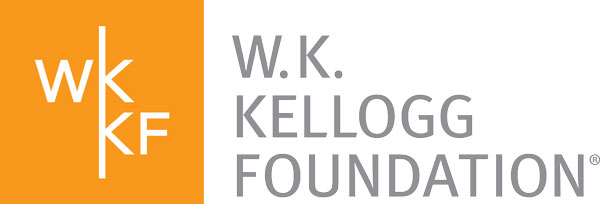This dissertation by FLDC member Derrick Lopez offers a case study that explicates the construct of “policy implementation process tools” as integral to the work of implementing the Promise Neighborhood Initiative. Policy implementation process tools reify and fortify the relationships necessary for local implementation of federal policy among collaborative partners. This dissertation proposes three classes of process tools that operate within the ecology of policy implementation: Formal Ecology Process Tools; Operational Ecology Process Tools; and Relational Ecology Process Tools.
The case study evidence suggests that the investment in partnership efforts to improve educational outcomes can bear fruit when process tools are identified and strategically employed. These “tools” embody the relationship currencies of “time”, “turf” and “trust,” the cultivation of which are essential to the furtherance of partnership development in collaborative policy implementation. When properly designed and deployed, these “tools” can effectively navigate educational policy implementation barriers/challenges and mediate the complexity of federal policy implementation in placebased initiatives. Accordingly, federal policymakers should allocate funding and specifically identify resources (both fiscal and human capital) dedicated to the development and deployment of “policy implementation process tools” when seeking to implement federal policy in the local context.



